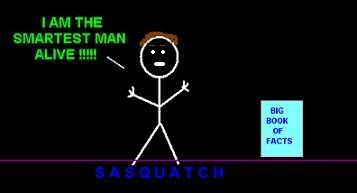Is it possible to be a Christian without a belief in God? I believe the answer is yes, that in our time being a Christian without a concept of God is both possible and necessary for those who find the life and teachings of Jesus compelling but have difficulty with the concept of God in traditional Christian theology. The various articles on this website argue in favor of a non-theistic form of Christianity that is reasonably called Christian Humanism.
I locate my particular religious perspective within the general framework of Christianity but I do so without any related concept of God in the traditional theistic sense of what that term means to most people who identify themselves as Christians.
This is the fundamental issue over which I part company with those traditional Christians who take the position that being a Christian essentially means having the right theology, that is, believing a particular set of theological propositions. My argument with them is not with their beliefs or with their confusion between mythology and history, but rather with their premise that affirming a particular set of orthodox doctrinal beliefs rather than striving to emulate the life of Jesus is what essentially defines what it means to be a Christian
This is a view of Christianity that makes sense to me. It is a de-mythologized Christianity, a Christianity without the necessity for god and freed from the theological baggage of the centuries preceding us, a Christianity that challenges us regardless of our view of god to model our lives after that of Jesus. Being a Christian is not any more complicated than that.
I am aware that some readers may object that my reductive view about the central core in Christianity, which I have interpreted in a way that I contend makes more sense to us today than the traditional formulation, is not sufficiently traditional to warrant my claim that it is a Christian view and they may wish to eject me from the Christian camp. Some readers may find my outlook incomprehensible or troubling.
However I will not concede that the views I will argue for in the pages ahead are any less Christian than those of the traditional Christian who is not yet ready to give up the mythical language in which the Christianity of our fathers has been transmitted to us.
I believe that my views fall within the boundary lines of Christianity, appropriately reinterpreted and understood in the context and language of the 21st Century.

















 That’s all I can think of for now. Sorry if I didn’t directly touch on what you wanted. (Kinda gotta go; didn't realize how late it was getting.) Anyhoo…
That’s all I can think of for now. Sorry if I didn’t directly touch on what you wanted. (Kinda gotta go; didn't realize how late it was getting.) Anyhoo…




 ). Vanilla Christians certainly wouldn't consider them Christian.
). Vanilla Christians certainly wouldn't consider them Christian.





Bookmarks